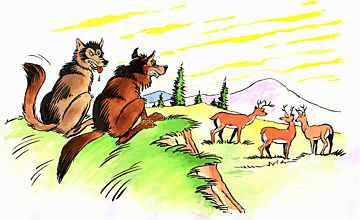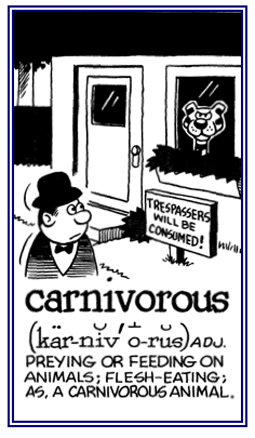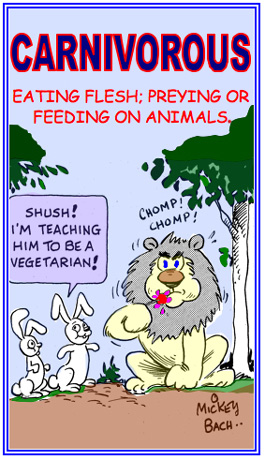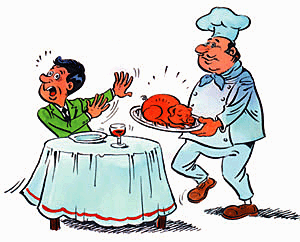carno-, carn-, carne-, carni-
(Latin: flesh, meat)
2. Any animal belonging to the order Carnivora, which includes predominantly flesh-eating mammals; such as, dogs, cats, bears, wolves, and weasels.
3. Any flesh-eating predatory organism; such as, a bird of prey or insectivorous plants: Venus-flytrap, pitcher plant, sundew, and butterwort; among others.
True carnivores are not the same as omnivores
True carnivores are animals that subsist on a diet consisting of meat. They may consume other products presented to them, especially animal products like cheese and bone marrow, or sweet sugary substances like honey and syrup; however, as these products are not essential to their existence, they do not need to consume them on a regular basis.
It's also said that true carnivores lack the physiology required for the efficient digestion of vegetable matter, and in fact some carnivorous mammals eat vegetation specifically as an emetic (vomiting) or forceful expulsion of the contents of the stomach.
Carnivores anticipating their next meal of flesh

I'm ready for prime stuff; not just the weak, sickly, or the lame.
![]() A special article about carnivorous plants.
A special article about carnivorous plants.


Go to this Word A Day Revisited Index
for a list of additional Mickey Bach illustrations.

I ordered a vegetable dish, not that lousy animal flesh!
Part of the secret of success in life is to eat what you like and to let the food fight it out inside.
As time passed, larger kinds of carnosaur seemed to have replaced the earlier types.
Related "meat, flesh" word units: creo-, kreo-; sarco-.
Cross references of word families that are related directly, or indirectly, to: "food, nutrition, nourishment": alimento-; broma-; cibo-; esculent-; sitio-; tropho-; Eating Crawling Snacks; Eating: Carnivorous-Plant "Pets"; Eating: Folivory or Leaf Eaters; Eating: Omnivorous.


